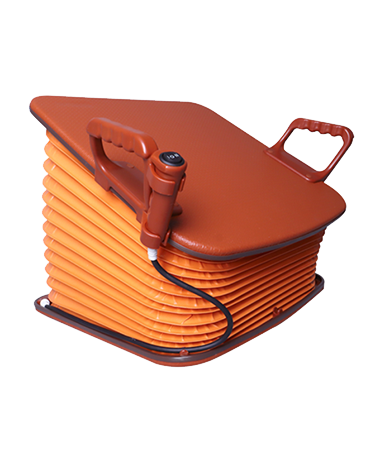As the global population ages, the elderly care industry is poised for significant transformation. With the phenomenon of increasingly severe aging population and a rise in the number of disabled elderly, the demand for innovative solutions in daily life and mobility for seniors has never been more critical. This article explores the future of the elderly care industry, focusing on advancements in safety, mobility, and daily living aids, utilizing keywords such as toilet lift, lifting cushion, lifting washbasin, intelligent commode, bathroom safety equipment, wheelchair, scooter, and smart facilities.
Innovations in Daily Living Aids
One of the most significant advancements in elderly care is the development of intelligent bathroom safety equipment. Traditional bathrooms can pose numerous hazards for seniors, especially those with limited mobility. The introduction of a smart toilet lift, for example, can help seniors maintain independence and dignity by allowing them to use the toilet with minimal assistance. Similarly, a lifting washbasin can be adjusted to the appropriate height, ensuring that seniors can comfortably and safely perform personal hygiene tasks.
The lifting cushion is another innovative product designed to aid elderly individuals in standing up from a seated position. This device can be placed on chairs, sofas, or even car seats, providing a gentle lift to help seniors rise without exerting excessive effort or risking falls. These intelligent solutions are pivotal in enhancing the daily lives of the elderly, allowing them to maintain autonomy and reduce the need for constant caregiving.
Enhancing Mobility for Seniors
Mobility is a critical aspect of elderly care, as it directly impacts an individual’s ability to engage in social activities and remain independent. The future will see a surge in the development and adoption of advanced mobility aids such as wheelchairs and scooters. Modern wheelchairs are becoming lighter, more durable, and equipped with smart features, such as navigation assistance and automatic braking systems, making them safer and easier to use.
Scooters, too, are evolving to meet the needs of the elderly population. These devices are no longer just simple means of transport; they are now becoming smart scooters with GPS navigation, obstacle detection, and even health monitoring capabilities. These innovations are crucial for elderly travel, enabling them to navigate their environments more safely and confidently.
Addressing the Challenges of an Aging Population
The increasing number of disabled elderly presents significant challenges for the care industry. There is a growing need for comprehensive care solutions that encompass both physical and cognitive support. Intelligent systems are being developed to monitor the health and wellbeing of seniors, using sensors and data analytics to detect potential issues before they become critical. These systems can alert caregivers or medical professionals in case of emergencies, ensuring timely intervention and reducing the risk of severe health complications.
Additionally, the integration of smart home technologies is set to revolutionize the way we care for the elderly. From automated lighting and temperature control to voice-activated assistants that can remind seniors to take their medication, these technologies are designed to create a safer and more comfortable living environment. The goal is to allow seniors to age in place, maintaining their independence while ensuring their safety and wellbeing.
Conclusion
The future of the elderly care industry is bright, with numerous innovations on the horizon that promise to improve the quality of life for seniors. The development of intelligent bathroom safety equipment like toilet lifts, lifting cushions, and lifting washbasins will significantly enhance daily living. At the same time, advancements in wheelchairs and scooters will offer greater mobility and independence. As we continue to address the challenges posed by an aging population and the increasing number of disabled elderly, smart technologies will play a pivotal role in ensuring that our seniors can live their golden years with dignity, safety, and autonomy.
The elderly care industry must remain proactive and innovative, constantly seeking new ways to meet the evolving needs of our aging population. By doing so, we can create a future where seniors are not only cared for but are empowered to live fulfilling and independent lives.
Post time: Jul-29-2024






